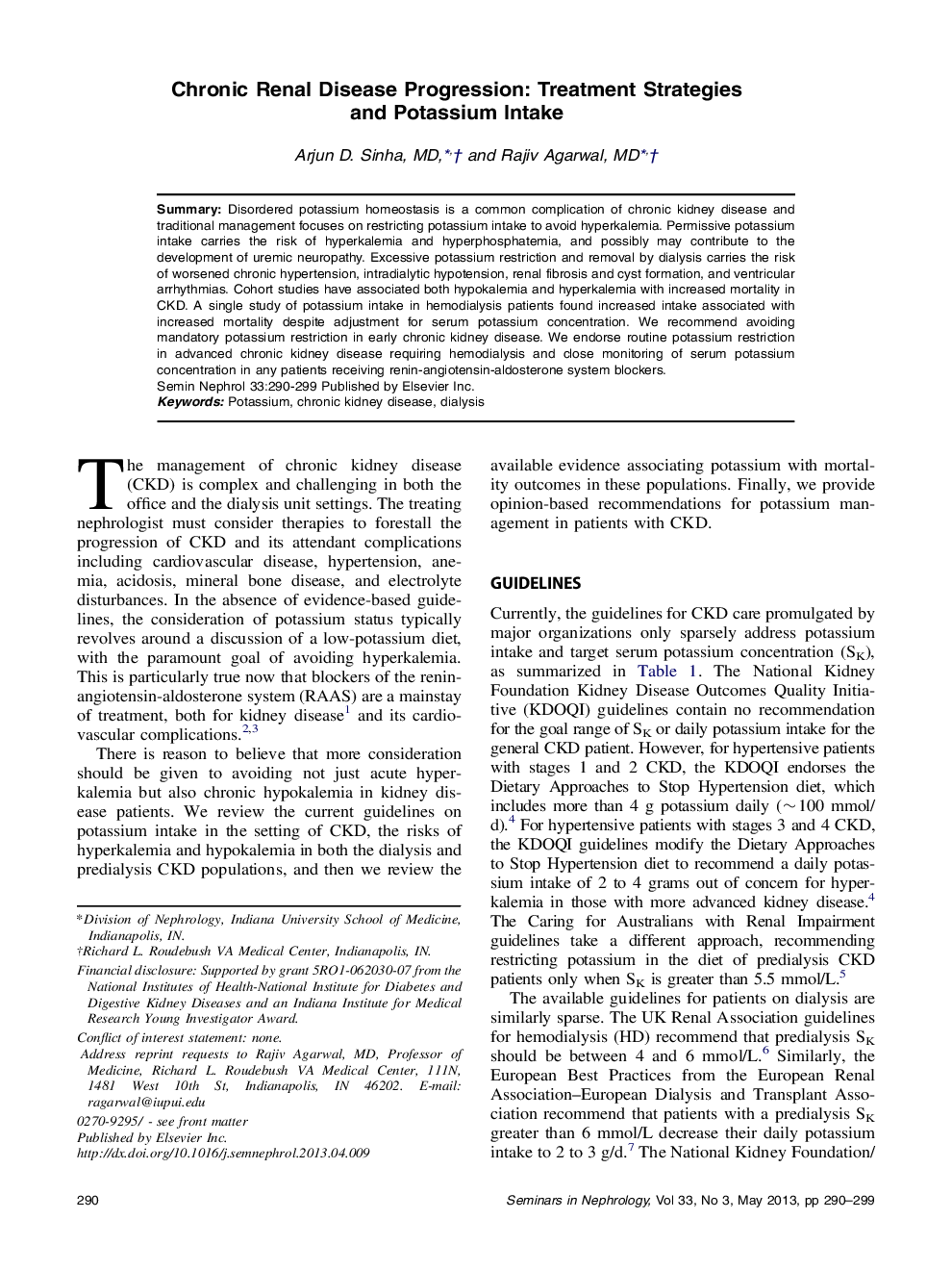| Article ID | Journal | Published Year | Pages | File Type |
|---|---|---|---|---|
| 3896581 | Seminars in Nephrology | 2013 | 10 Pages |
SummaryDisordered potassium homeostasis is a common complication of chronic kidney disease and traditional management focuses on restricting potassium intake to avoid hyperkalemia. Permissive potassium intake carries the risk of hyperkalemia and hyperphosphatemia, and possibly may contribute to the development of uremic neuropathy. Excessive potassium restriction and removal by dialysis carries the risk of worsened chronic hypertension, intradialytic hypotension, renal fibrosis and cyst formation, and ventricular arrhythmias. Cohort studies have associated both hypokalemia and hyperkalemia with increased mortality in CKD. A single study of potassium intake in hemodialysis patients found increased intake associated with increased mortality despite adjustment for serum potassium concentration. We recommend avoiding mandatory potassium restriction in early chronic kidney disease. We endorse routine potassium restriction in advanced chronic kidney disease requiring hemodialysis and close monitoring of serum potassium concentration in any patients receiving renin-angiotensin-aldosterone system blockers.
